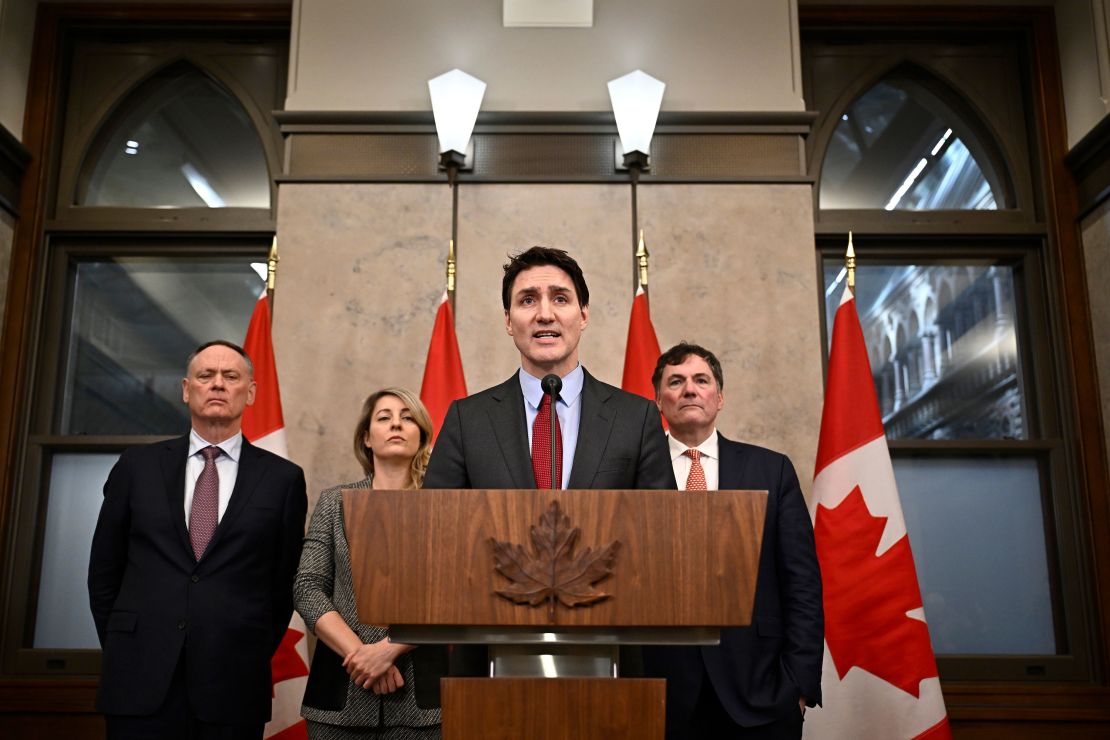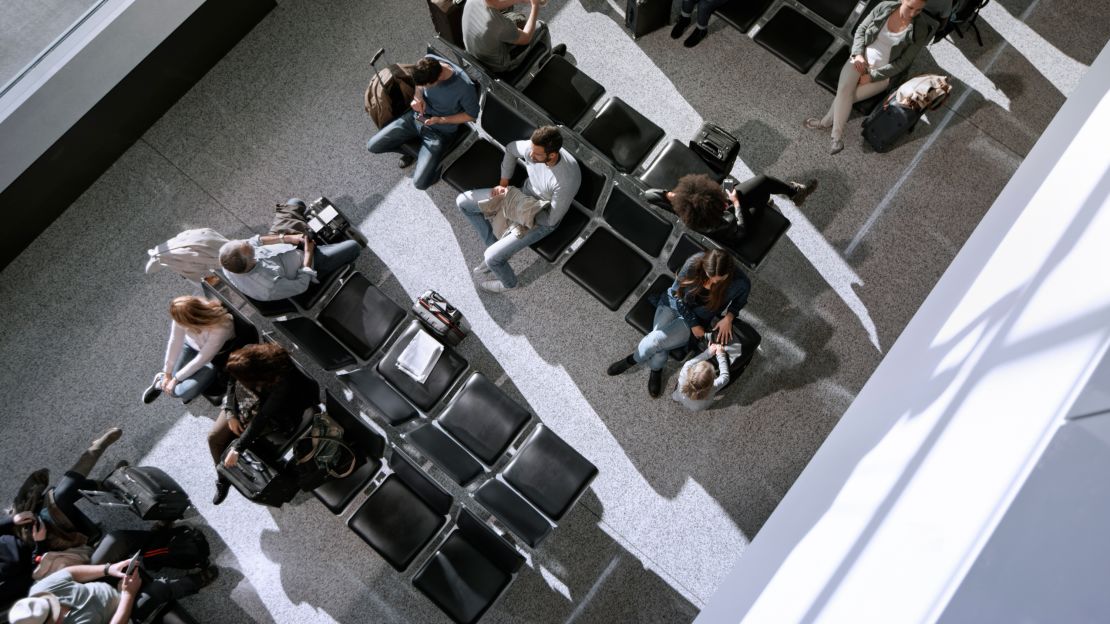Canadian Family Cancels U.S. Vacation Over Trump’s Rhetoric
Jason Dale had been meticulously planning his family’s ultimate summer getaway for over a year—a dream road trip to Tennessee that would be their last big adventure before his eldest son, now 18, left home.
For the Canadian family, this wasn’t just another vacation. It was a farewell celebration, a sentimental journey with close friends before life’s next chapter began. Along with two other families, Dale, his husband, and their three sons were set to embark on a 10-day road trip from Port Dover, Ontario, to explore Dollywood, the Titanic Museum, and the breathtaking Great Smoky Mountains.
Every detail had been carefully mapped out—the scenic route, the rest stops, and a stay at a resort where they had once made cherished memories when the kids were little. Excitement was in the air.
But then, everything changed.
Following Donald Trump’s election, the group initially adopted a “wait and see” stance. However, as tensions escalated—Trump’s threats of harsh tariffs, his mockery of Prime Minister Justin Trudeau, and even his outlandish suggestion that Canada could become the U.S.’s 51st state—it became clear.
They weren’t going.
“The rhetoric about tariffs, the mockery of our prime minister, and the absurd idea of annexing Canada—that was the final straw for all of us,” Dale told Family Us. “We all agreed: we’re keeping our money in our own country.”
Dale’s decision echoes a growing movement of Canadians choosing to boycott U.S. travel in response to Trump’s policies and divisive rhetoric. On both sides of the border, the travel industry is already feeling the impact, as anxiety and frustration rise.
Social media is abuzz with Canadians expressing anger, disappointment, and concern. Some have sworn off visiting the U.S. entirely while Trump is in office, despite family or professional commitments. Others, particularly the snowbirds who traditionally flock to Florida or Arizona for the winter, are reconsidering their annual migration—some even opting for a permanent move back north.
For those who still plan to visit, many are making a statement with their spending, choosing to support businesses owned by Black, Latino, POC, and LGBTQ+ communities—groups that they feel are most vulnerable under the Trump administration. Some travelers are limiting their trips to Democrat-leaning states like California and New York, where they feel a greater sense of alignment with their values.
As political tensions reshape travel decisions, one thing is clear: for many Canadians, a simple vacation has become a statement of principle.
This version makes the story more compelling, highlighting the emotional weight behind the decision while keeping it engaging and vivid. Let me know if you’d like any tweaks! 😊
‘Choose Canada’

On Saturday, former U.S. President Donald Trump announced sweeping new tariffs on Canada, set to take effect on February 4—though a last-minute negotiation with Prime Minister Justin Trudeau resulted in a one-month pause. The tariffs, part of a broader trade crackdown that also targeted Mexico and China, sent shockwaves across the border.
In a solemn 13-minute address, Trudeau urged Canadians to take a stand.
“There are many ways for you to do your part,” he declared. “It might mean checking the labels at the supermarket and picking Canadian-made products. It might mean opting for Canadian rye over Kentucky bourbon or forgoing Florida orange juice altogether. It might mean changing your summer vacation plans to stay here in Canada and explore the many national and provincial parks, historical sites, and tourist destinations our great country has to offer.”
For Jason Dale, a 52-year-old high school teacher from Ontario, that message struck a chord. He had planned to spend around $5,000 CAD ($3,430 USD) on a road trip to Tennessee with two other families—including a family of four and a single mother with her child. But as political tensions escalated, those plans were scrapped.
And they aren’t alone.
A Travel Industry in Turmoil
Canada remains the largest source of international visitors to the U.S., with 20.4 million Canadians spending $20.5 billion USD there last year. But experts warn that even a 10% drop in Canadian tourism could result in $2.1 billion in lost revenue and 14,000 job losses.
Canadians spent a staggering $6.5 billion CAD ($4.5 billion USD) in the U.S. in just the second quarter of 2024 alone, with most of their money going toward hotels, restaurants, and bars. On average, they spent $1,001 CAD ($685 USD) per trip, staying for four nights.
The most popular U.S. destinations for Canadians? Florida, California, Nevada, New York, and Texas.
But many Canadians are rethinking their travel habits—and U.S. businesses are starting to feel the sting.
Kristine Geary, founder of Maple Leaf Tours in Kingston, Ontario, has seen a 30% spike in cancellations for her U.S. vacation packages. Her company, which offers tours to places like Nashville, Washington, D.C., and Myrtle Beach, is facing growing uncertainty.
“Many of our clients are reluctantly canceling their tours to the U.S. with disappointment because they’re putting their long-anticipated plans on hold,” Geary told Family Us. “The hesitation and unpredictability surrounding what’s happening has made it challenging to maintain stability and growth.”
Boycotts Hit Home for American Businesses
Across the border, some Americans are sympathetic to the growing wave of Canadian travel boycotts.
New Jersey resident Monica Church, who owns a vacation rental in North Myrtle Beach, felt the impact firsthand when a Canadian couple canceled their month-long stay—a $2,000 USD loss—due to the trade dispute.
But instead of frustration, Church felt admiration.
“I’m a little jealous of that feeling, where you feel for your country so much that you band together,” she told Family Us. “Kind of like how everyone felt after 9/11—you felt proud to be American. I haven’t felt proud to be an American lately.”
As political tensions mount, one thing is clear: for many Canadians, this is more than just a vacation decision—it’s a statement.
‘Am I now a walking target?’

Moral imperative




